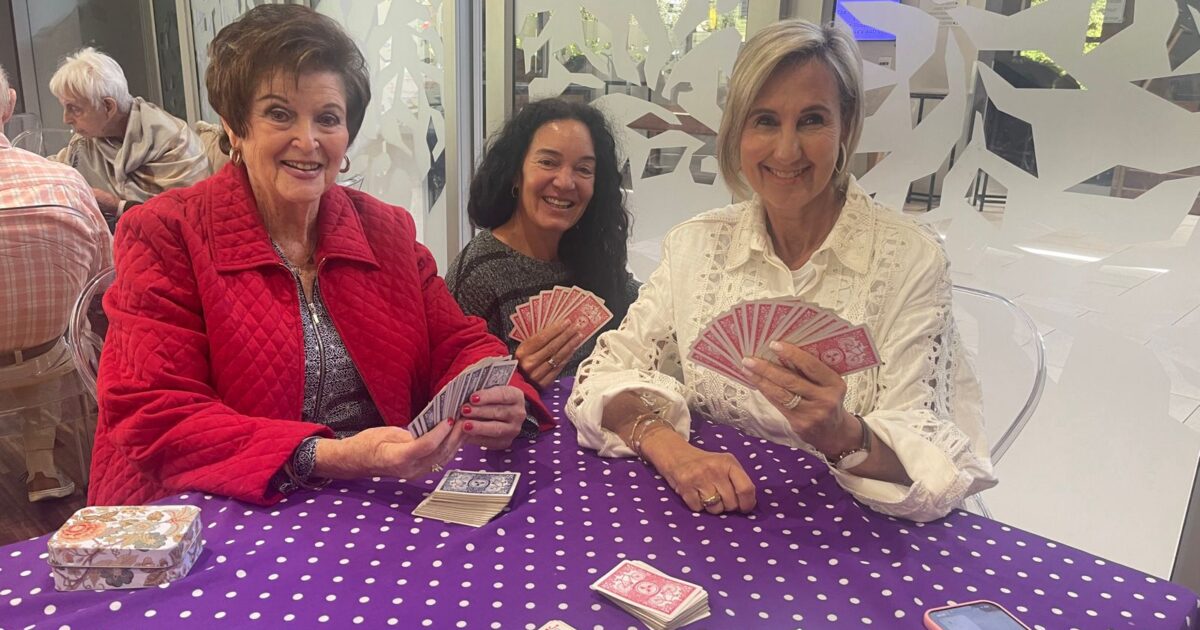Sport
Kaluki, a game for all ages

When we hear of people playing the card game Kaluki, we automatically assume they are Jewish. That’s because, like Klaberjass, Kaluki is a game Ashkenazi Jews in Johannesburg and around the world have been playing for many decades.
In fact, it has been said that probably every Jewish child with Polish war-survivor parents knows how to play Kaluki. For example, American writer, musician and geophysicist Stuart Rojstaczer, the son of Polish-Jewish immigrants, fondly remembers playing Kaluki more than 25 years ago. He said children at the time grew up playing the game on Shabbat, even though you’re not supposed to play cards then, because it was their best way to pass the time.
Kaluki has apparently been played in Johannesburg for more than 50 years. Former Joburg Kaluki teacher Shirley Baum taught it to her Rummy-playing mother and hairdresser, Andi Kerr, who followed in her own mother’s footsteps by playing the game.
Kerr’s mother, Pepe Tobin, played cards from the day “that my husband and I got married a long time ago. We played games like Canasta and Rummy. Kaluki wasn’t in fashion then. About 20-something years ago, a friend of mine started playing Kaluki at The Links in Linksfield.” The Tobins started to join in the games, and it seemingly grew in the community from there.
Over the past two years, word of mouth about the great social environment the Kaluki mornings offer at Linksfield Shul spread, and more and more players came to take part.
“We started off with about four tables in the small hall downstairs,” says Sharon Sneider, who began the Kaluki mornings with Shardi Matthews as a chesed initiative. “Today, we fill up to 20 tables in the main shul hall and get women in their 30s right up to their 80s. So many people looked forward to a Wednesday morning, when they met their friends, that they then started to make their own games at somebody’s house or at a restaurant independently.”
Kerr, who has been playing Kaluki for about 15 years, says, “I think women play today just to have the experience of doing something fun, but you’re not spending huge money and you’re in a safe environment. People learn how to play and then find a group to play with, which you call a school, and you start playing. We become friends from it.”
Kaluki is a game from the ‘Rummy family’. While Rummy is believed to be a spin-off of a game called Conquian, which originated in Spain or Mexico, Air Jamaica flight attendants created and taught the original game of Kalooki (preferably spelt as Kaluki in the Johannesburg community) in the 1970s and 1980s. Today, the game is played with different rules in different countries. Kaluki is popular in Jamaica and Britain, for instance, with Jewish players reportedly being in the majority in the latter.
As early as 2003, people in Israel have been playing Kaluki, with Telfed organising card mornings of bridge, Klaberjass, and Kaluki in Kfar Saba.
On top of this, the book Kalooki Nights includes a mother from a Jewish family in North Manchester with memories of the Holocaust who played Kaluki obsessively with a small circle of friends and admirers, except on high holy days.
“My friends and I can scream and shout at each other if everyone takes the card that the other one wants,” says Sneider. “We yell at each other, but still love each other. We play at our home or sometimes we play at Three Roses Café near Selwyn Segal. We are experienced and can talk on the phone, eat popcorn, and drink tea while we play, and we catch up on the week’s news.”
Sneider formed part of a regular school with her friends for about 20 years. She took up the game as she has a flair for cards, and learnt to play it with three friends.
Kerr, who helps fundraise for Edenvale Shul through Kaluki tournaments there, got into the game as “my mom was playing about four or five times a week and, as time went on, my friends and I decided to teach each other, and we formed a school and started playing weekly”.
Baum, who taught Kaluki to people of all ages prior to the COVID-19 pandemic and still plays about six times a week, says that, “It’s easier than bridge and is basically seven rounds of Rummy.” She taught the game to her own daughter, who was seven at the time. “The game involves getting three or more consecutive cards of the same suit.”
Kaluki is played as a series of seven hands with different qualifying criteria in each hand. The person who fares best overall wins the Pushka, a central pot in which each person puts coins to play and coins to buy additional cards, according to Sneider.
She, Baum, and Kerr have all played in tournaments, particularly at Hunters Rest in Rustenburg.
“Bernice Bloom organises a tournament once a year,” Kerr says. “We play the whole weekend. The top three get prizes. I actually won this year, funny enough. We win money. We’re hoping to have another tournament towards the end of the year. The buy-in to the tournament is about R500.”
When Kerr plays socially, the buy-in is usually R5, and the win about R30 or R40.
